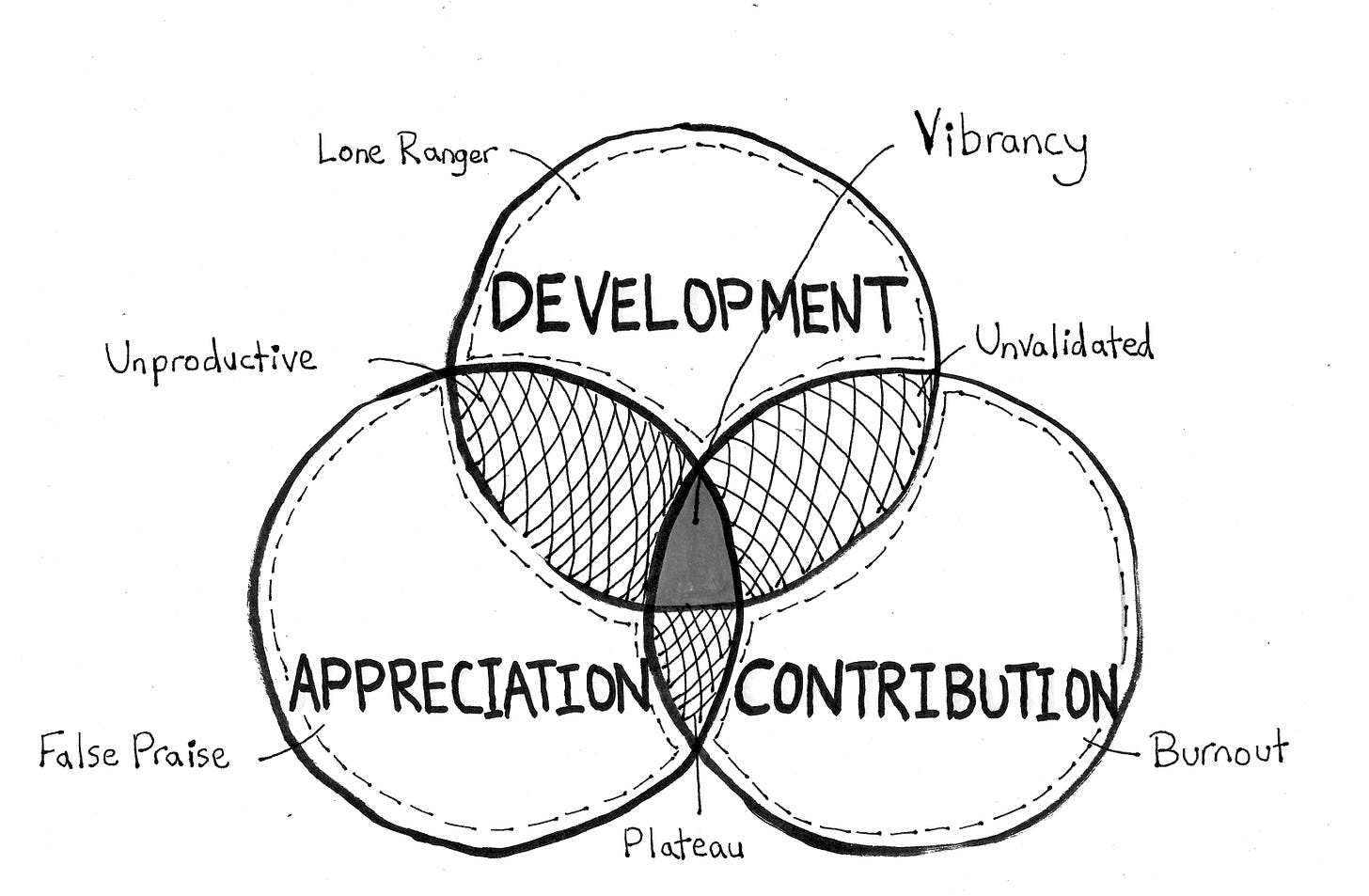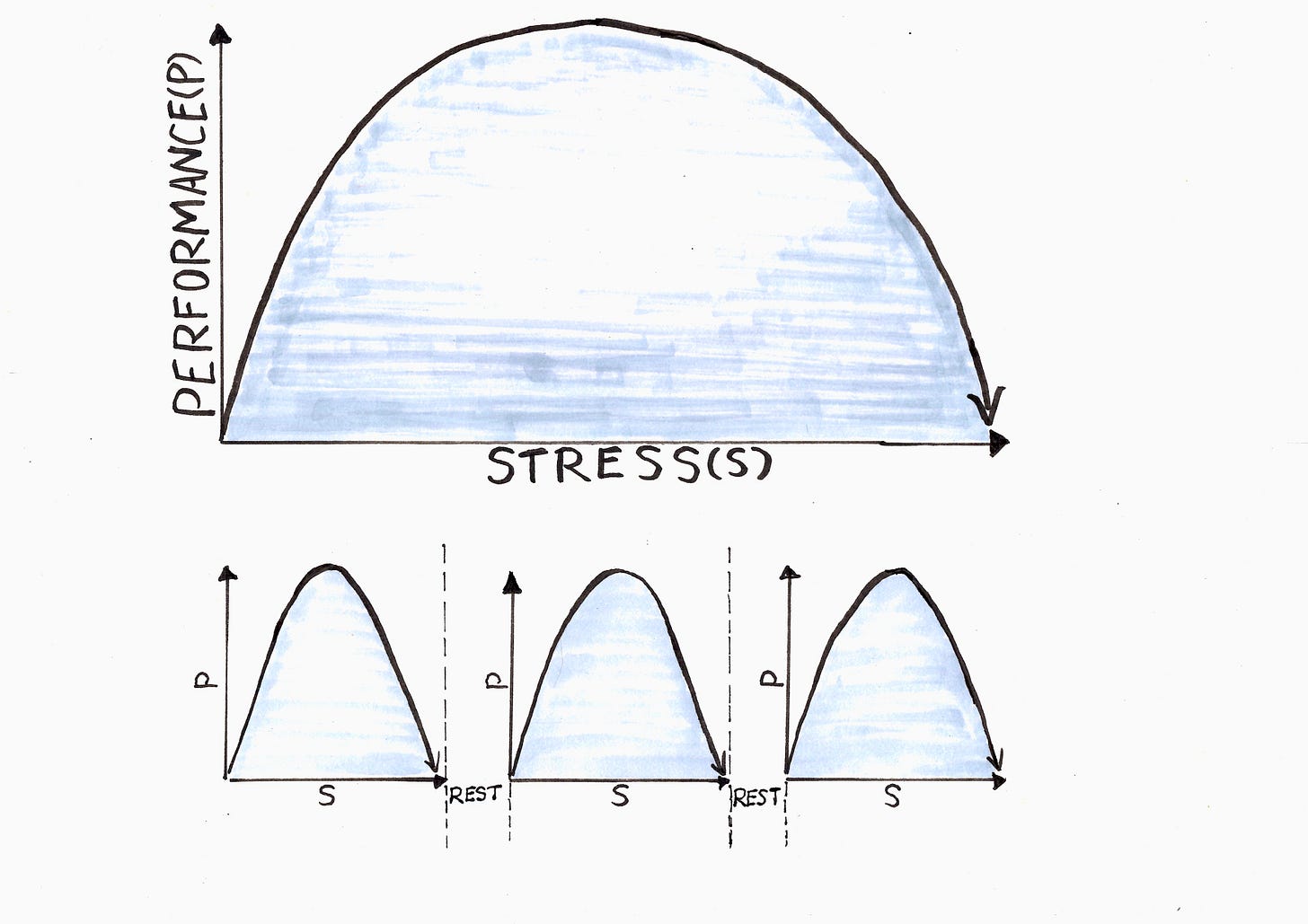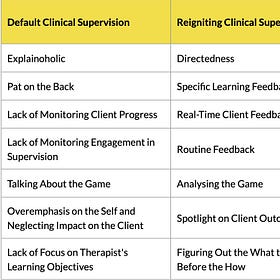Many in the helping profession carry unspoken wounds from the job.
Not so much from the act of helping others with emotional sufferings or traumatic pasts, but from everything else surrounding the healing enterprise.
I get to hear from dedicated therapists all over because of my trainings and consults with them. Here's a list of seven invisible wounds that are brought to my attention, as well as stuff that I’ve encountered in my career:
1. Hurt by Organisations
Psychotherapy can be such an isolating endeavour. We are rarely alone in an office, but so much of our inner monologues fail to find a room to breathe in a dialogue with someone else who is not our clients.
In some manner of speaking, many of us are orphans. Sure, we might have a line supervisor at work, but given the organisational arrangements of gatekeeping performance, the context doesn't seem to be conducive for emotional safety. And if you are in private practice—well, it can get more lonely.
So we end up a large percentage of time at work without anyone really knowing us in a deep way.
RELATED
Even though direct counselling/therapy work is the primary Job Description for most therapists, I find it really bizarre that employers wrangle them to not only do more extra curriculum side-projects outside of the therapy room—as if the work of therapy is not enough of emotional labour—and their KPIs are tagged to all kinds of stuff outside the therapy room. Organisations create a sort of contradiction that invites neglect of the person of the therapist.
Instead, we become a cog in the wheel.
The practice of psychotherapy is one of the few professions that the personhood needs to fully show up in the profession. The artificial split that we promote about separating the person from the profession lures us into a false assumption that our work is one that is measured by output and productivity.
says,The personal cannot be divorced from the professional.1
The person needs to show up in the professional role in order to do their best work. This is not to say that you should just “let it all hang out” and have no filters and professionalism.
What this job requires is to bridge between the personal and the professional, and not fall into the trappings of a post-industrial mindset of numbers churn, factory farming therapy. When our organisation starts to measure the wrong thing, we end up wounding the healer.
When we wound the healer, the client is at risk of becoming a number, not a name.
RELATED
In order for us to do our best work, the practice of psychotherapy needs to be less of an individual sport and more of a communal act. It's not enough to just be told that we need doses of "self-care." What we need to do is to design our practice to have "auxillary" minds that we feel safe and supported, thus feeling less "orphaned" and neglected.
Antidote:
Speak your un-spokens with mentors, with people you trust.
Encircle yourself with peers. The practice of psychotherapy is not a lone sport.
2. Hurt by Overwork
Every man seems to feel that he has got the duties of two lifetimes to accomplish in one, and so he rushes, rushes, rushes, and never has time to be companionable—never has any time at his disposal to fool away on matters which do not involve dollars and duty and business.
— Mark Twain
As part of the healthcare and social service machinery, some of us are pushed so badly (see #1).
And some of us are seduced by the buzz of busyness.
Many of us tip over our own thresholds and become overwhelmed by the onslaught of demands on a daily basis.
The promise of modernity was that our technology is going to help us work less and give us the freedom that we so yearn for. It seems that its promise has become our peril. We are not only working more, at work and at home, but we can’t seem to switch the damn thing off.
We can’t even switch our own minds off.
The tyranny of busyness is being so focused on trying to get something done and missing the world completely.
And the price of overwork has serious consequences in the practice of therapy. Either someone at work or at home, pays the price for your exhaustion.
RELATED:
Antidote:
Metabolic energy:
Treat emotional labour as drawing from the same tank as physical labour. Because it does. Don’t run yourself empty. Always leave 20% when you reach the end of the day.Stress is not the issue; the lack of recovery is.
Give your best with each person in front of you. But give breaks in between.
(I elaborated on both points in the book, Crossing Between Worlds, Chapter 12, Stress and Recovery).
3. Hurt by Competence
Don't get me wrong. It isn't bad to become highly competent at our jobs.
But the shadow side of this is when we see ourselves as above others.
A psychologist once said to me, "After all the years of studying, I insist my patients call me doctor."
To be fair, she holds a doctorate. But where is this coming from?
The trouble is, based on the existing evidence, qualifications, licensure, certification, and even years of experience, does not predict effectiveness of outcomes.
A more troubling sign is that the more experienced therapists seem to be more prone to professional isolation.
I doubt this is unique to our profession. Still, competency should not leave us more alone.
The evidence in what separates the best from the rest in our field is that the more effective therapists
Invest more time in deliberate practice
Are more humble and carry more doubts (niessen-lie)
Willing to be wrong.2
What can we do?
Antidote:
Hold lightly:
The remedy is not to say "I don't know anything," or simply adopt a perspective of "not-knowing."
Rather, the antidote might be to hold what we know lightly, because even if you are highly competent, you're bound to meet someone who doesn't appreciate the multiple alphabets and degrees after your name, or the vast wisdom and deep knowledge that you carry of specific subjects.Hyper-correction:
Make it a point to catch yourself when you’ve changed your mind. This is not easy, especially if you are a seasoned practitioner.
For more on this, read To Be Altered.
4. Hurt by a Diffusion of Attention
In an information-rich world, the wealth of information means a dearth of something else: a scarcity of whatever it is that information consumes. What information consumes is rather obvious: it consumes the attention of its recipients.
...A wealth of information creates a poverty of attention.
— Herbert Simon.
Simply needing to cognitively task-switch and move our attentional focus repeatedly is fatiguing and costly
The cost of task-switching—as many of you already know—is high. It is metabolic wastage.
In psychotherapy, the spotlight of your attention is the premium requisite that allows you to do what you.
We have to protect it, and not let it get thwarted.
Antidote:
Close the digital windows:
When you are at your clinical practice, turn off all notifications. Make sure your Inbox window is closed. Use an app blocker like Freedom.io if you have to. I have to, because I don’t trust myself.
If you found yourself saying, “But Daryl, I can’t do that. I need to check my emails. If I don’t, I might drop the ball…”
The answer? I’m not saying ignore your emails. I’m saying, treat your emails like you would with your snail mail. Check it once—or twice a day, if you really have to. Our inbox seems to repurposed as a messaging device, which is highly problematic. Make it known to others in the team your new relationship with your emails.DMN:
Allow periods to have your mind “un-focused” on anything specific. The benefits of being able to switch from a focused network to the default mode network (DMN, or what I call ‘do mostly nothing’) is severely under-rated. When you are able to oscillate between focused and default states, you are more likely be cognitively sharper and more creative.3
5. Hurt by Helplessness
The strongest known force for daily motivation is a sense of progress.
The lack of progress, coupled with our persistent effort of trying the same approach repeatedly, can render us feeling helpless.
And this might seem fairly obvious to an outsider reading this, but those in the helping profession are compounded with a sense of helplessness because they are often shooting hoops pass a veil. If you see heaps of clients day in day out, some return and some don’t, you are left wondering how they are doing.
Furthermore, when therapists lack any clear and systematic way of tracking individual's session by session outcomes, as well as measuring their own effectiveness on an aggregate level, we lack an objective perspective as to how clients are doing.
We end up solely relying on "evidence-based practice" out there, and lack any real evidence of our own to squelch this nagging inner-doubt.
Am I any good? Do I suck at what I do?
What do I do when EMDR doesn’t seem to work? What happens when CBT/ACT/MBTI (pick your acronym) is not living up to the promise?
Helplessness is worsened by shame. Shame wants us to hide.
Yet, we don’t have to be “ashamed.”
I bet that the stuff that you feel inadequate about, is the stuff that most therapists have felt before.
Antidote:
Adopt a practice of systematically tracking outcomes and alliance. Allow the real-time client dataset to change your mindset.
In supervision, don’t just talk about your clients. Show your work. Get specific and nuanced feedback from your supervisor through the recordings. For more, read this.
The 7 Mistakes of Clinical Supervision
One of the key areas related to our developmental efforts is in the realm of clinical supervision.
6. Hurt by Money
Rarely do I meet someone in the helping profession that’s in it for the big bucks.
Some of us, have a sort of professional-guilt to be charging people for what we do. What we do is so intangible and invisible.
Doesn't help that money has been buried deep in our psychs as the "root of all evil."
In the non-profit sector, therapists who are hardworking and dedicated to helping aren’t paid as well as they should be.
Activist and fundraiser Dan Pallotta has an astute observation of our double-standards between the for-profit sector and the social service sector,
"So in the for-profit sector, the more value you produce, the more money you can make. But we don't like nonprofits to use money to incentivize people to produce more in social service.
We have a visceral reaction to the idea that anyone would make very much money helping other people.
Interestingly, we don't have a visceral reaction to the notion that people would make a lot of money not helping other people.
You know, you want to make 50 million dollars selling violent video games to kids, go for it. We'll put you on the cover of Wired magazine. But you want to make half a million dollars trying to cure kids of malaria, and you're considered a parasite yourself.
There is so much to say about our relationship with money. I might expand more on this in a future post.
Antidote:
Stop demonising money. Money is not the root of all evil. It is the love of money.
How much is enough? Do you know the actual figure?
7. Hurt by Violations to Dignity
One of the deepest wounds people experience in their professional role is being treated a means to an end, and not valued as an end of itself.
After several workshops with different groups, it became clear that a major source of anger, resentment, and bad feelings among people who had to work together could be traced back to incidents in which individuals felt that their dignity had been violated.
...What exactly gets injured? Our dignity."
— Donna Hicks, Dignity.
When the human conversation becomes a "Q&A assessment and then intervene," it ceases to be a relation and becomes a transaction for the client.
This harms the therapists too. They have now become another cog in the wheel, churning out their interventions like sausages. They have now become therapy robots.
Maybe this is why some executives are enamoured by AI being able to meet the rising demands of mental health services. No harm of dignity when the healer is a bot, is there?
Another source of being hurt by violations to dignity can come from being under appreciated. And this might not be even be intentional from the organisational standpoint, but when fail to take a step of empathy, we inadvertently leave the caring professional feeling undervalued and under-appreciated.
We feel valuable when we are valued.
When someone does not feel appreciated, they will feel less valued or even devalued.

Antidote:
Encourage: A person in power has the capability to rob a person's dignity or to lift the personhood. Your task is not to “empower,” but to encourage. And preserve the dignity of each person.
Means vs Ends: Treat others not as a means to an end, by an end of itself.
A healing system
Congratulations if none of the seven points applies to you. If this is you, may you then look out for colleagues around you, even if they are your seniors.
If you have been in this field for a bit, at some point in your career, you’ve experienced at least one of the seven hurts.
I'm not calling for us to mollycoddle each other. I’m saying that we can’t simply deliver the service of care to others whilst violating the principles of humanity towards the ones who are delivering care. We can’t afford to be that cooperation who touts kindness and compassion in their branding and have employees collapse in a sweatshop.
We need to have a system of care to support those who care.
I leave you with Immanuel Kant:
‘In the kingdom of ends everything has either value or dignity.
Whatever has a value can be replaced by something else which is equivalent; whatever, on the other hand, is above all value, and therefore admits of no equivalent, has a dignity.”
Take care of each other.
P/S: Here’s another new post from my other Substack, Strength and Warmth.
Daryl Chow Ph.D. is the author of The First Kiss, co-author of Better Results, The Write to Recovery, Creating Impact, and the latest book The Field Guide to Better Results. Plus, the new book, Crossing Between Worlds.
You might be interested in my other Substack, Full Circles: Field Notes on the Inner and Outer Life.
From The Courage to Teach, by Parker Palmer.
For more about this, read
Chow, D. (2014). The study of supershrinks: Development and deliberate practices of highly effective psychotherapists, and
Nissen-Lie, H. A., Monsen, J. T., & Ronnestad, M. H. (2010). Therapist predictors of early patient-rated working alliance: A multilevel approach. Psychotherapy Research, 20(6), 627–646. https://doi.org/10.1080/10503307.2010.497633
The default mode network (DMN) is a network of brain regions that activates during rest and self-referential thought, such as daydreaming or introspection. It typically deactivates during focused, goal-oriented tasks.









